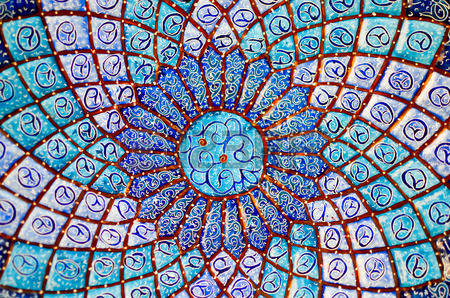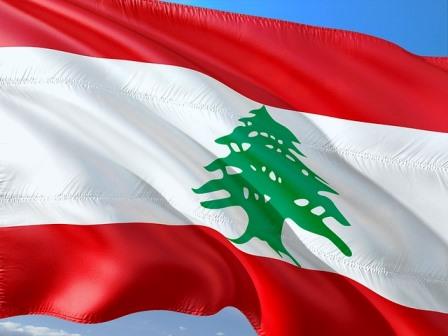Breaking
- MENU

Speech of His Majesty King Abdullah II of Jordan,
12 June 2011
Speech of His Majesty King Abdullah II on the occasion of Arab Revolt, Army Day and Coronation Day, Amman, Jordan, 12 June 2011
(Official translation from Arabic)
In the name of God, the Most Merciful, the Compassionate
Citizens of this dear country,
Peace, God’s mercy and blessings be upon you.
I address you today as we celebrate the anniversary of the Great Arab Revolt, Army Day and Coronation Day while watching and observing the events and transitions that are taking place in our region. This requires us to be discerningly aware of the difference between the required democratic transformations and achievable ones on the one hand, and the risks of chaos and fitna on the other. We in Jordan must distinguish between those democratic transformations that take us towards the desired reform and the exploitation of the same in the interest of some partisan or factional agendas that steer us away from national consensus and comprehensive reform process.
No one in Jordan has a monopoly on reform or its promotion. We have been the champions of a long process of reform that has always been at the top of our priorities. I have called for reform and modernisation since I assumed my constitutional powers, and I have worked through various means in order to bring about reform and change.
Today, and on this occasion, we announce our reform vision for the Jordan of the future, in which democracy and popular participation take root as a consistent approach for the sake of building the Jordanian state in which promoting justice is a purpose, tolerance is a mission and respect for human rights is the goal; where intolerance, extremism and reticence have no place. Rather [we seek] a state of democracy, pluralism and participation through political reforms that are concrete and measurable and that meet the aspirations of our people for reform and change, away from the dictates of the street and the absence of the voice of reason.
We remember today the legacy of the Great Arab Revolt and its mission of liberty, justice, acceptance and human dignity. This event is dear to us, as it serves as a reminder to all of us of the principles of citizenship that unite Jordanians, who, irrespective of our backgrounds and origins, met here and established the state in consensus and harmony.
We are here to but concede that the feeling and conviction of belonging to this country is the determinant of our national identity, where the rights and duties of citizenship are embedded, regardless of ethnic background and origin, religious belief or political affiliations.
We all on this sacred land are one family: citizens, equal in rights and duties, where no one is favoured over another except in his dedication to this country.
It must be emphasised here that my responsibility and duty is to stand at an equal distance from all. And as the head of the family, I favour no one individual or group in the family or differentiate between them. I am one of you, and I am all for you, loving and giving, without any favouritism or exception.
Today, we announce our vision for Jordan, the one we want to be the lighthouse around which Jordanians rally to proceed with their march under the Constitution as a firmly established parliamentary monarchy, based on the separation of powers that shall be accountable to the nation as their constant source of authority.
Elaborating on this vision, and on political reforms in particular, our guiding principles will emanate from the recommendations produced by consensus of the National Dialogue Committee on the Elections and Political Parties Laws that reflect the aspirations of Jordanians and ensure the pronouncement of a modern Elections Law that leads to the election of a Lower House representative of all Jordanians, able to earn their trust by safeguarding their rights and achieving their aspirations.
The law should guarantee the fairness and transparency of the electoral process through a mechanism that will lead to a Parliament with active political party representation; one that allows the formation of governments based on parliamentary majority and political party manifestos in the future
The practical approach to this meets the constitutional review now being undertaken by the Royal Committee I recently tasked to explore possible amendments appropriate for Jordan’s present and future and to oversee their implementation in accordance with constitutional channels to guarantee the institutionalisation of work and democratic parliamentary pluralistic standards, the mainstay of the political process in Jordan.
The reform process practically started with the National Dialogue Committee’s launch of a balanced dialogue to end the belief of a reform monopoly.
I would like to reiterate our seriousness in implementing the dialogue’s outcomes, as per our instructions to the government to conduct the next parliamentary elections according to the compatible political laws that resulted from this dialogue and seek to realise more just representation, to encourage the free and effective participation of national political parties in parliamentary elections and to enable members of Parliament to participate in the government based on their party programmes and the proportion of their representation in the House of Representatives. All of this falls in the context of pluralism and faith in parliamentary democracy, at all times and under all circumstances.
National consensus, public participation and a stage for reform, autonomous of any imposed monopoly, is the way to enhance reform – one where there is no need for appeasement nor capitulation to the conditions of any current, so long as we all agree on the substance of reform.
In the same context, we will instruct the government to hold new municipal elections based on a new law that can guarantee greater representation for local communities and serve citizens more efficiently and fairly as a key ingredient for the implementation of the wider decentralisation plan. The plan is based on the establishment of municipal councils to increase public participation in decision-making and their role in identifying local development priorities.
In terms of social reform, I stress the importance of accelerating efforts to abolish all forms of discrimination against women in the legislative system through the political and representative institutions that emanated from our vision for a new, reformed Jordan.
As for our approach to countering corruption, we are firm in our fight against corruption in all its forms and welcome all ideas of how best to institutionalise the role of the Anti-Corruption Commission, empower it to take swift action on any suspicions raised, encourage it to open channels of communication so as to receive complaints and ensure that it regularly informs citizens of the results of its work in a manner that does not prejudice the course of justice but that eliminates any reason for doubt and rumours.
Dealing with corruption on the basis of rumours and gossip at the expense of countering it through the judicial system and active monitoring institutions mars Jordan’s reputation regionally and globally, and negatively affects any endeavour to attract investment to the country.
Based on that, it is imperative that a legal mechanism is found to deal with those who fire false accusations and rumours, engage in the character assassination of many honest and innocent civilians and unrightfully damage their reputation without conscience.
Brothers and sisters,
Recent regional developments and transformations have confirmed the importance of the media in maintaining the relationship between the state’s institutions and society through openness to all views and positions. You should all be confident that your viewpoint is heard and that errors are noted and observed. However, this matter requires changing the practices that have contributed to the decline of the media. We want a media that can carry the message of freedom and reform, optimise the accomplishments of our country and protect national unity and the relationship among Jordanians and that with the state based on citizenship founded on justice, respect for the law and a guarantee of public freedoms and human dignity.
I would like to warn of the deterioration of political and media discourse into one that aims to trigger hatred. I will not accept any infringement on the freedom of Jordanians, their dignity or national unity, and I emphasise my opposition to chaos that leads to destruction.
I would also like to stress the importance of economic reform as a principle aspect of comprehensive reform, foremost of which are tax reforms to achieve social justice, raise the level of competitiveness, enhance the atmosphere for investment, secure work opportunities for youth and maintain the state’s active observatory role in an open market economy where the private sector plays a principle role in creativity and innovation.
As for our vision for the youth, it is concentrated on dialogue as a solid national mechanism between them and the state and among themselves that keeps them aware of the problems and challenges at stake and ensures that their voices are heard. It is the right of our present and future majority to have a role in formulating national priorities and their implementation by linking the outcomes of the youth forums with decision-making institutions and formulating policies so that they can sense the direct impact of their activity and mobilisation.
Sons and daughters of my beloved nation,
We direly need to activate the reform programme and accelerate its implementation; for we are moving forward in the process of reform, modernisation and comprehensive development within a system of freedom, justice and equal opportunities. There will be no postponement or reluctance in dealing with the files of reform, freedom and democracy.
I call on all political and social forces to endorse this initiative, build on it and translate it into immediate steps toward a responsible national effort that can realise our vision for Jordan’s future, one that suits the aspirations of its people and their willpower to face challenges.
I would like to take this occasion to express my gratitude and appreciation for my brother King Abdullah bin Abdel Aziz, the Custodian of the Two Holy Mosques, and other brother leaders in member states of the Gulf Cooperation Council for welcoming Jordan’s membership to the Council.
Congratulations to Jordan and all Jordanians.
Peace, God’s mercy and blessings be upon you.
Source: King Abdullah II Official Website
http://www.kingabdullah.jo/index.php/en_US/speeches/view/id/478/videoDisplay/0.html
As part of the policy, the MEI@ND standardizes spellings and date format to make the text uniformly accessible and stylistically consistent. The views expressed here are those of the author and do not necessarily reflect the views/positions of the MEI@ND. Editor, MEI@ND P R Kumaraswamy

Basic Agreement between The Holy See and the Palestine Liberation Organization, 15 February 2000 Note: The
Read More »
PARLIAMENTARY ELECTIONS OF THE REPUBLIC OF LEBANON 1943-2018 ELECTIONS DA
Read More »